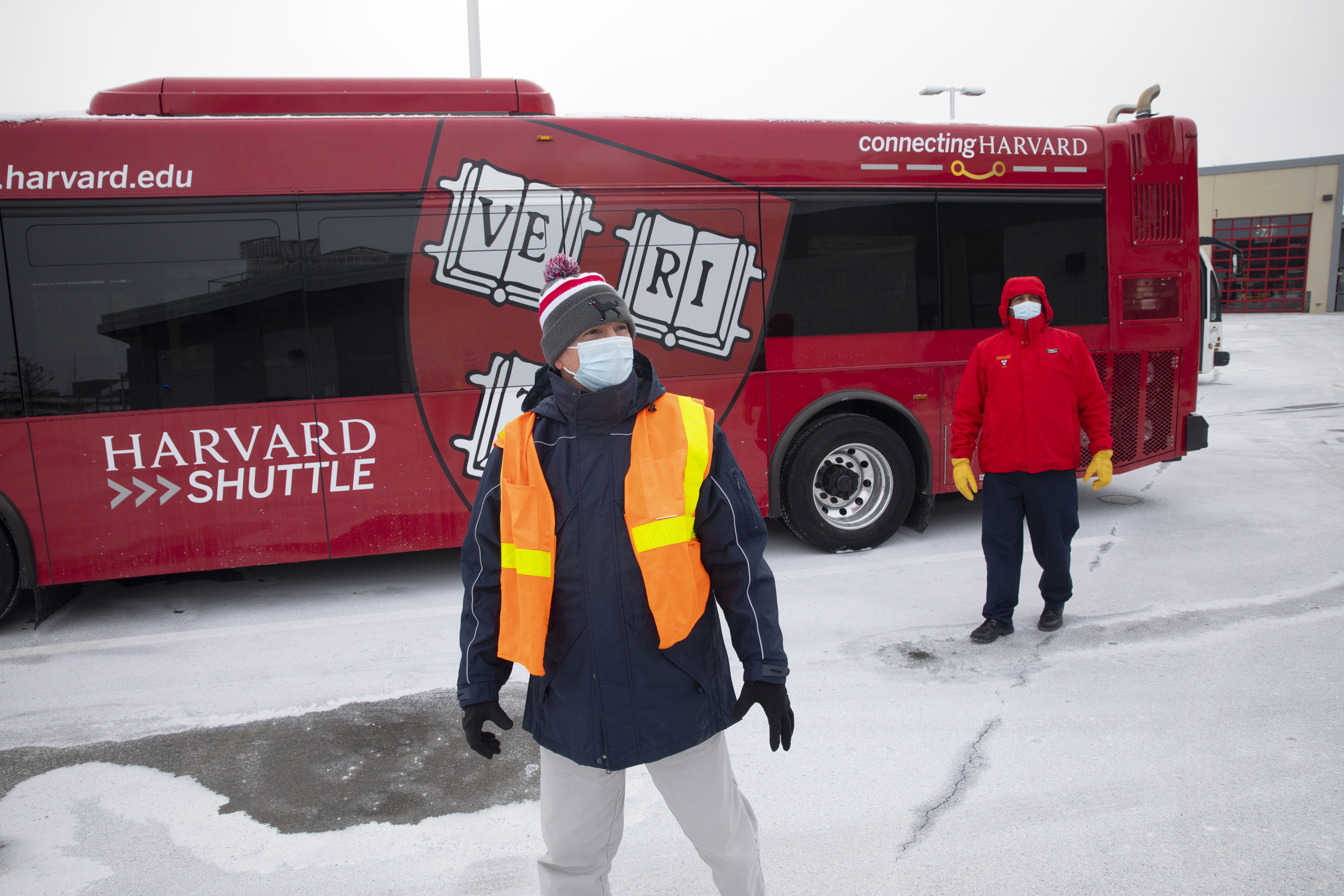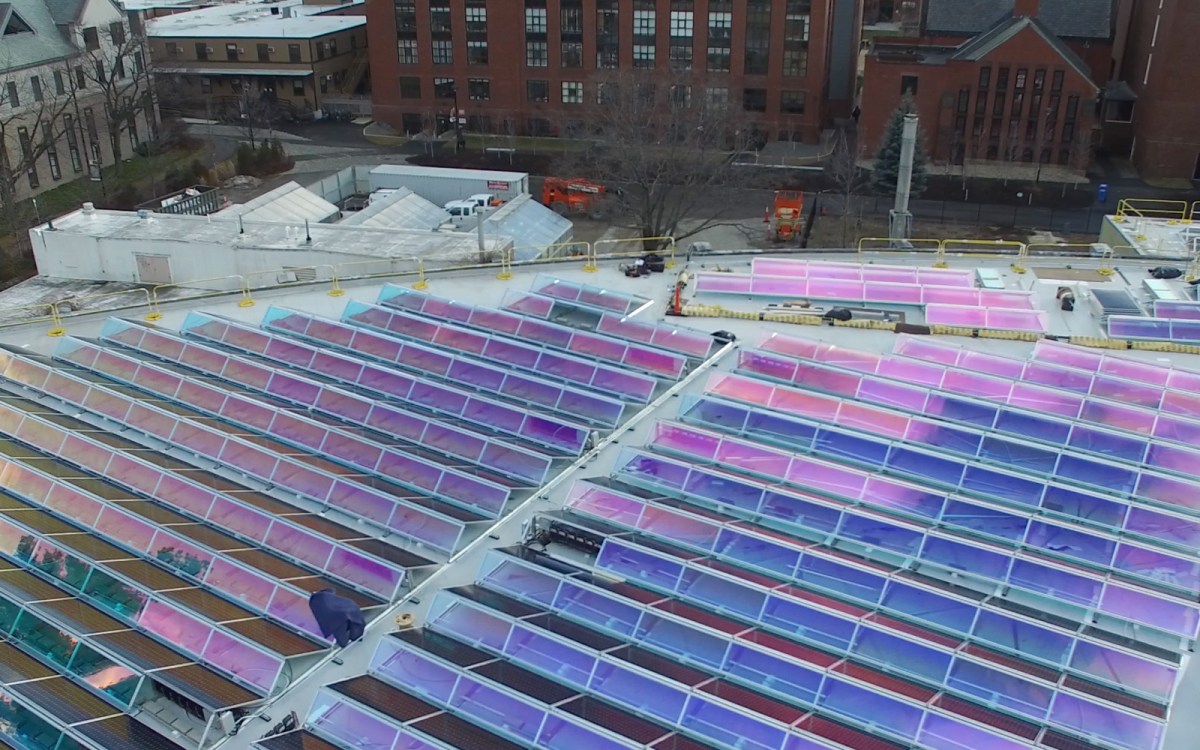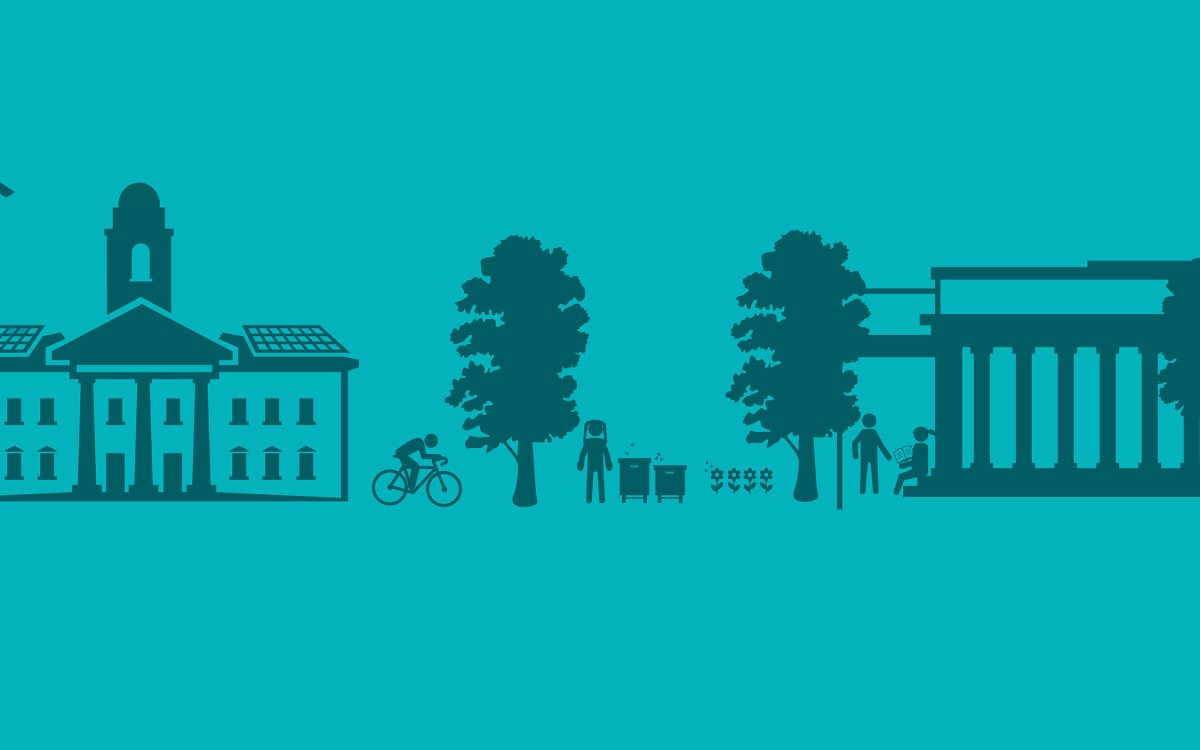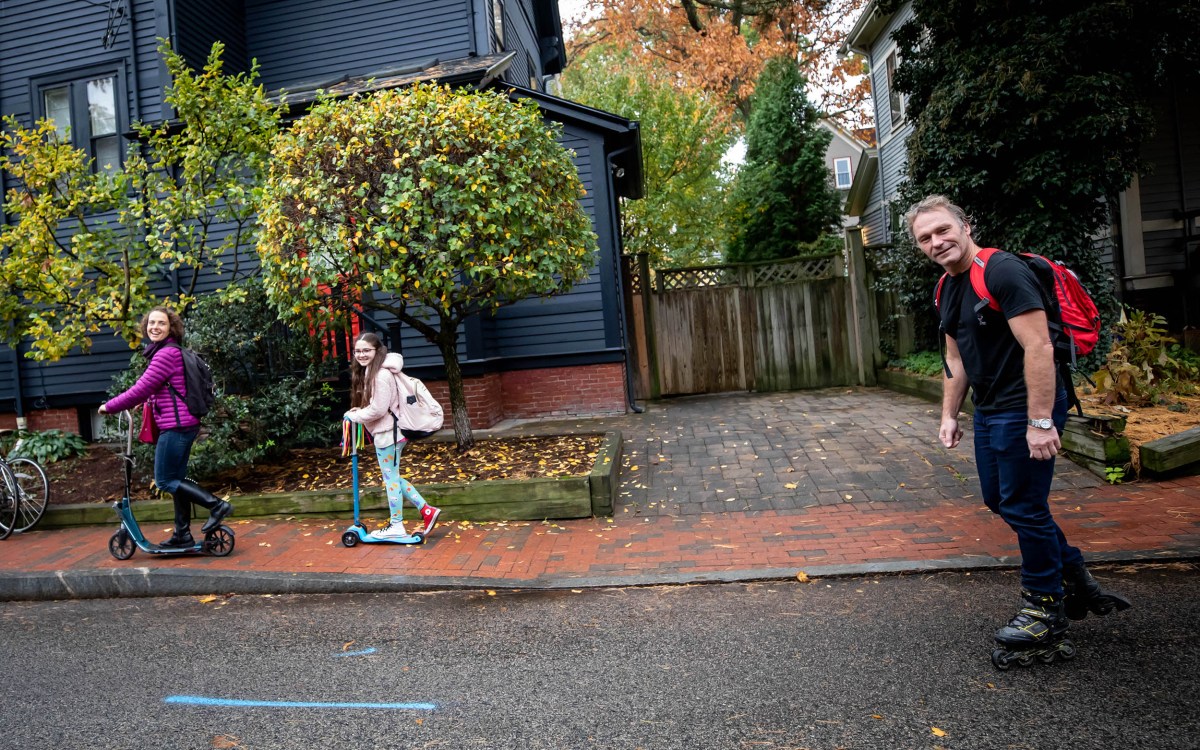
James Monahan (front), associate director of Transit & Fleet Management, and shuttle driver Densis Pena at the Bus Shop in Allston. Harvard will replace four biodiesel buses with 100 percent electric buses this fall.
Kris Snibbe/Harvard Staff Photographer
On the road to a fossil fuel-free future
University invests in four 100% electric buses
In 2018, Harvard set a goal to eliminate the use of fossil fuels on its campus by 2050 and to achieve fossil fuel-neutrality by 2026. To achieve this, the University made a commitment that all Harvard-owned vehicles will operate without fossil fuels.
Taking a major step toward that goal, the University recently purchased four 100 percent electric buses and electric infrastructure. The new buses will replace four, similarly sized bio-diesel powered vehicles representing more than 30 percent of Harvard’s fleet.
“We’re always looking for ways to improve the efficiency and sustainability of our fleet,” said John Nolan, managing director for Transportation Services. “This is a transformational project that can have a tremendously positive impact in the community and significantly move the needle towards a more sustainable future.”
Each year, the fleet transports approximately 600,000 students across Harvard’s campus and the transition to electric is expected to lower greenhouse gas emissions by more than 220,000 pounds annually. Harmful air pollutants will also be reduced providing health benefits to local communities.
“Motor vehicles are a large source of NOx emissions, which lead to fine particulate matter (PM) pollution in the atmosphere,” said Elsie Sunderland, Gordon McKay Professor of Environmental Chemistry at Harvard John A. Paulson School of Engineering and Applied Sciences. “These emissions are especially a problem in dense urban areas with lots of traffic. Exposure to fine PM has been directly associated with premature mortality and a suite of other adverse health effects.
“I am thrilled to see Harvard modeling the pathway to electric bus fleets to improve public health and address climate change as part of the broader commitment to be fossil fuel-free by 2050,” added Sunderland, who is also a professor of environmental science and engineering at the Harvard T.H. Chan School of Public Health.
“Harvard takes its responsibility of being a good neighbor seriously,” added David Harris, director of Transit & Fleet Management. “One of the great things about this project is that the buses will produce much less noise and operate far more smoothly as they navigate the densely populated streets of Cambridge and Allston.”
Electric motors are exceptionally quiet, provide stronger acceleration, and require far less maintenance than traditional engines. Electric vehicles can convert more than 77 percent of their electric energy into power at the wheels while typical gas-powered vehicles convert less than 30 percent, according to the U.S. Department of Energy.
“Investing in electric buses will have a positive impact on the health of people on our campus and in the Cambridge and Boston area,” said Heather Henriksen, managing director of the Harvard Office for Sustainability. “Harvard hopes to be a catalyst for other universities, businesses, and cities by piloting the transition to electric buses which contributes social, health, and climate benefits while being cost effective. This project was a success thanks to the collaboration between Transportation and Parking, Financial Administration and the Office for Sustainability.”
The project was supported with a Massachusetts Department of Environmental Protection (MassDEP) grant program, which is funding nearly 100 projects across the commonwealth to help electrify the transportation sector. In addition, a loan from the Harvard Green Revolving Fund, a $12 million revolving loan fund that provides up-front capital for projects that reduce Harvard’s environmental impact, will enable investment in the charging system infrastructure necessary to support the new vehicles.
Each Proterra battery-electric transit bus is 35 feet long (similar in size to the current buses), has a seating capacity of 29, and runs on a 450 kWh battery. The new 800-volt system architecture allows vehicles to accept high-power DC fast-charging. The shuttles will be charged during off-peak overnight hours when demand for electricity is typically lower using 150 kW charging stations located at 28 Travis St. in Allston. The vehicles can be fully charged in about three hours.
“Massachusetts is working to transform the state’s transportation system from a diesel-based system to an electric one and, in doing so, will help the state attain the aggressive emissions reduction goals set forth under the Global Warming Solutions Act,” said Martin Suuberg, commissioner of the Massachusetts Department of Environmental Protection (MassDEP), the agency distributing the grants.
Harvard also recently joined MassEVolves, an initiative that recognizes and supports the work of organizations in Massachusetts that use zero emission vehicles for their operations, employees, and communities. As a participant in MassEVolves, Harvard supports opportunities to secure cleaner air and a stronger economy across the state. To help achieve these goals, Harvard pledges to create and implement a Zero Emission Vehicles Action Plan, which will include steps such as replacing bio-diesel powered buses with 100 percent electric buses.
Harvard has already incorporated electric power into many campus operations, from electric leaf blowers to service and operation vehicles. Commuters can also access dozens of electric vehicle charging stations across the campus in Cambridge and Allston.








